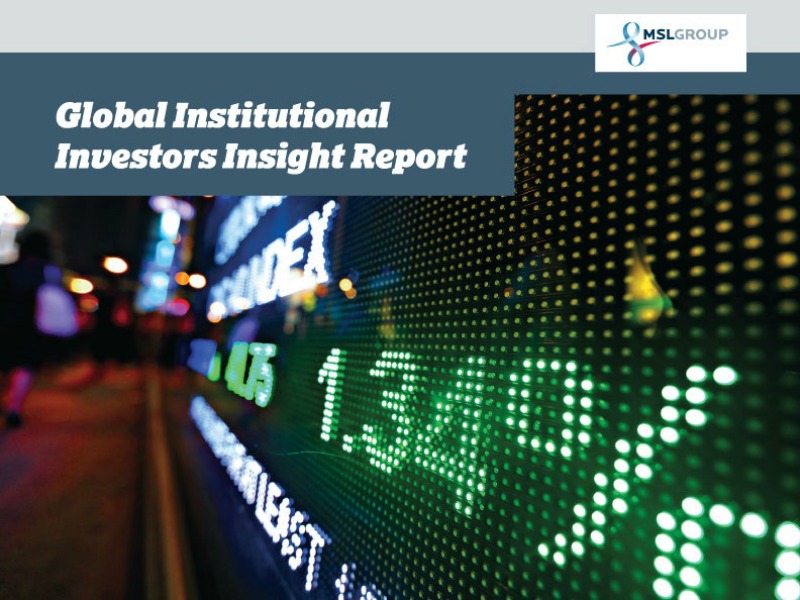Holmes Report 09 Dec 2014 // 5:56PM GMT

LONDON—Shareholder activism is on the rise in the wake of the financial crisis, according to a new study into the attitudes of institutional shareholders and sell-side analysts towards public companies.
The Institutional Investors Insight report, from MSLGroup financial PR firms including CNC, Capital and Kekst, polled 500 institutional investors and sell-side research analysts across the globe, in a bid to analyse the factors that shape a company's financial reputation.
The study found that more than three-quarters (77%) of investors surveyed believe that activism levels will increase in the coming three years and become more prevalent worldwide—a view most strongly held by US investors.
In addition, the report documents four factors that have become more prominent for investors when evaluating whether to invest in a company after the financial crisis:
-
Good track record in meeting earnings expectations (65% of investors).
-
An equity story that is clearly defined (58% of investors).
-
A demonstrable link between the compensation of directors and company performance (54% of investors).
-
High quality investor relations team (51% of respondents).
The survey also demonstrates that “extra-financials,” — intangible factors that often do not show up on a balance sheet — are becoming more important to driving valuation today. The top three extra-financial factors taken into account by institutional investors surveyed are corporate strategy (95%), quality of executive management (95%), and transparency of investor disclosures (91%).
Notably, the media image of a company was rated important by 66% of investors, and a digital and social media presence was cited by 52%, suggesting that corporations can influence institutional investor perceptions directly through these platforms.
“Our survey findings highlight key market distinctions among investors," said MSLGroup global financial practice leader and CNC partner Roland Klein. "As just one example, investors in Europe now place more importance on the degree to which director compensation aligns with corporate performance when compared to their US counterparts—62% in Europe versus 42% in the US"
Klein believes the report demonstrates that "while institutional investors around the world share certain characteristics and approaches, a one-size fits all approach to investor engagement is not optimal, as cultural and behavioural differences are becoming
more transparent."
As another example, investors in Asia place a significantly higher importance on a number of important factors including sufficient sell-side coverage (62% versus 33% globally), management visibility at sell-side events (56% versus 39% globally), a dedicated investor relations function (67% versus 51% globally), management one-on-ones (61% versus 45% globally) and a digital footprint (54% versus 39% globally).
When it comes to extra-financial factors, these regional differences remain important: 77% of investors in Asia note that a digital and social media presence is important to driving a company’s valuation, compared to 40% for European investors and 49% for US investors.
At the same time, media image was viewed as important by 86% of investors in Asia, compared to 54% for European investors and 66% for U.S. investors.
"Although many companies are seen to have improved their investor communications practices in recent years, the diverse and increasing demands of a global audience mean
more needs to be done to maintain and cultivate a supportive shareholder base," added Klein.


































.jpg)
















